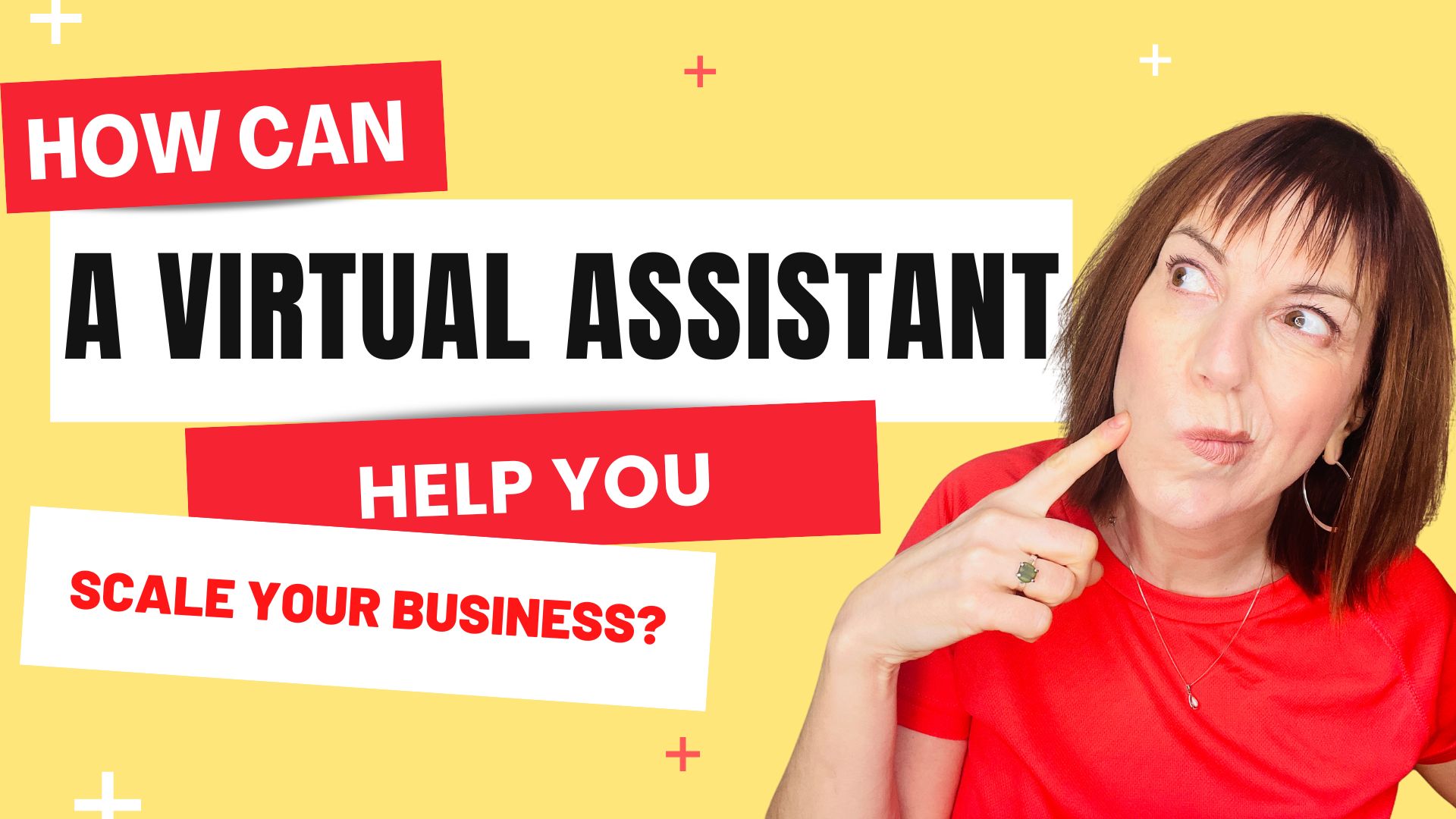Episode Summary
Win The Hour, Win The Day Winners Circle
https://winthehourwintheday.com/winners-circle-masterclass
Win The Hour, Win The Day! www.winthehourwintheday.com
Podcast: Win The Hour, Win The Day Podcast
Facebook: https://www.facebook.com/winthehourwintheday/
LinkedIn: https://www.linkedin.com/company/win-the-hour-win-the-day-podcast
You can find Teresa Younkin at:
Website: http://www.teresayounkin.com
Email: teresa@realsmartmethod.com
LinkedIn: https://www.linkedin.com/in/teresayounkin/
Facebook: https://www.facebook.com/groups/924646788397110
Win The Hour Win The Day
https://winthehourwintheday.com
Teresa Younkin Podcast Transcription
[00:07:27]Kris Ward: Hey, everyone. Welcome to another episode of Win The Hour, Win The Day Podcast. I am your host, Kris Ward. And today we have Teresa Younkin in the house and Theresa is going to talk to us about the top leadership principles that every boss should know. Now I’ve got a lot to say on this myself, so I can’t wait to dive in and have some real fun conversation and share some silly stories. So welcome to the show, Theresa.
[00:07:52]Teresa Younkin: Hi, thank you for having me.
[00:07:54]Kris Ward: Oh, I’m thrilled that you’re here. Okay. So leadership principles. I’ll let you start, but I’ll tell you a couple of my things I’m pretty passionate about. All right. So if you know me, we’re all about having a W.I.N Team. What Is Next Team, and that doesn’t mean just having a VA that you don’t work on her desk at him or her, and then you
[00:08:12] check on it like a parent and that’s not, you want them managing you, not you managing them. That’s one thing. So we’re just going to skip past that, but yes, you have a team and then and a team could be one person, two people, whatever. But this whole concept, too, of leadership culture, all that stuff, we tend to think of bigger organizations, but you need that like so much more when you’ve got one or two people than you do when you have 200 people. And do you agree to that, Theresa? No pressure.
[00:08:43]Teresa Younkin: I do agree because it really is about relationships, right? It’s not about the tools or the processes. Like you have to put relationships over those processes and tools because of…
[00:08:56]Kris Ward: Yeah. Oh, sorry. Let me just jump in. I apologize. I promised, I said, I promise I’ll interrupt you. It’s to me, I liken it to like, if you’re on an ocean liner and this whatever, 500 people in that and something happens and that ship is going down, that’s one thing.
[00:09:12] But if you’re in a little rowboat with three people and there’s problems with that boat, like you want to really have a real solid ability to communicate and have leadership and culture with those three people. Cause that’s it. Those are your resources. So there’s where I want you guys to understand. Your friends out there that lean into it matters more for the smaller the team.
[00:09:31]Teresa Younkin: It does. It does. And you know, you have to, you want to make sure that you’re communicating with your teams to make sure that each member feels valued, right? We’re not all the same. We don’t have the same personalities. We don’t have the same with communication skills.
[00:09:46] And every time that you bring somebody new into your little world, whether it be two, three or 4, 5, 10, or 50. When you bring somebody in, you go through this process and it’s called like texts, five stages of a team, right? You are forming storming, norming. You’re performing. It’s just one of those things where if you’re forming, everybody’s just getting to know each other.
[00:10:14] We don’t know who’s who, what our skills are. I don’t know how you can benefit me. How do I benefit you when you’re storming? That’s where people are kind of jockeying for position and you’re trying to figure out who does what, when, where and why? Then you get to norming, right? That’s where your team is like, oh, I understand where I am.
[00:10:35] I understand where I bring value, because that is so important. Right? You want your… whoever’s on your team to be just bought into your mission, they want to be engaged in your vision and you really, they really wouldn’t be working on top of their skills. Nobody wants to come in and just kind of lollygag around.
[00:10:54] It doesn’t make them feel valued. Right. So you really want them to be at a place where they’re feeling like everybody understands us and that’s when they start to perform. And that’s where you start to see teams really take off. That’s when you always say like, you can read each other’s minds.
[00:11:11]Kris Ward: Yeah. I’ve just recently, we do quarterly reviews and we have this whole process and it really is for me, it’s set up for me to get more conversations with them and I work. Well, it’s what I do. Right. I do it with my coaching clients, you know, in the Winners Circle, all this other stuff. So I do this day in, day out and I model it and I teach it to my clients.
[00:11:30] So I have to say, when I was doing the quarterly review, I wasn’t expecting a lot of surprises because you know, this is something I focus passionately on all the time. And I was so surprised by some of the things that came up. And they were just little things, but they were really heartfelt, like one person on my team.
[00:11:48] She said, you know, in all her other jobs, she’s super crazy efficient and she’s very detail oriented. So she tended to, she said she was always the behind the scenes person and the way we run everything, in a little daily scrum meetings or whatever. She said, you know, you’re all, you always ask us all for opinions.
[00:12:06] And it’s really an equal playing field. And she said, one of the things I learned was everything is just one message away. Like I just got a question. It’s no big deal. But she said, she’d never felt more seen and heard before then when working with us and she said it just opened for her, she said it was a surprise of skill sets and build these, she didn’t know she had, cause she’d always been defined in this role.
[00:12:28] So I felt like saying, all right, I gotta call my mom and tell her I’m doing really good at work today. Like, I was like, oh, that’s nice. So, you know, it was. I mean, there wouldn’t have been an opportunity for me to get that information from her otherwise. So it really does. Then let me lean into like, oh, wow, okay.
[00:12:47] This is working. They really liked this. And they notice how we include them in all the decisions and tell them what’s going on. So it does, of course, create loyalty and efficiency. It’s really powerful when you start to get them so emotionally invested in how you make them feel. And of course we all know, and that just rises up, you know, the quality of the work. So it’s subtle, but very powerful stuff.
[00:13:07]Teresa Younkin: Exactly. And I have to say that the one thing that you did talk about is having that daily standup, all it takes is five minutes a day to build a relationship, right. I’m going to stay to reach out. What do you have on your plate today that you need to do? Or this week?
[00:13:25] Right? Usually, it’s Staley is the best. What do you have on your plates? You do this speak and then what blocker do you need help with? Because as a leader, you need to be able to move. That’s your job is to move blockers for people to be able to succeed in what they need. Right. And most of the times you might have, you usually have the answer.
[00:13:41] Yeah. Something that they’re not going to spend 20 minutes trying to figure out. So, we implement a 20 minute rule. If it’s going to take you more than 20 minutes to do something, make sure that, and you can’t find an answer, ask somebody.
[00:13:53]Kris Ward: Yeah, yeah. A hundred percent. And that’s exactly it. You’re right. We do little mini scrums. You know, a minimum of four times a week. Sometimes we don’t do them on Fridays, but the whole concept of that is especially as entrepreneurs and this, you know, I know with my team, one of them, Evan, is still telling a horror story about, I think it was six years ago. He had Christmas off and I had read this book and then read this book and signed up for something.
[00:14:19] And he came back on January 2nd. And as far as he’s still traumatized, the whole world has changed, right? Like that could happen. You can read a book on the weekend as an entrepreneur like, okay, this is our new direction for Monday. And people need to be caught up. So I think it, it really, and then you’re like, I don’t even remember that we were doing it that other way last week.
Right. So it really does help with the little mini meetings, like are so like whatever 15 minutes and it just keeps us all focused and with the same common goal.
[00:14:48]Teresa Younkin: Exactly. So like I use.. I’m a former scrum master, so software development. And so one of the things that we do, like I said, daily stand-ups we do weekly planning to prioritize.
[00:15:00] Okay. Right. But first, before you do that, you always celebrate, what did we do before? Like what did we get done so that people aren’t always feeling like it’s like more, more, more, more, more like the taskmaster, but you guys have done good things. You’re celebrating them and they get involved in that. And I got to tell you, some of the funnest things to do is to let your team plan the celebration games that come out of that are great. And everybody’s involved. Yeah. You’re, you’re keeping that culture. You’re building a culture of..
[00:15:32]Kris Ward: It doesn’t have to be much either. I have this little Pom Pom thing I got from the dollar store. And like, if somebody doesn’t, I rate people get so excited. Like the other day, even a client of mine said she told me something she did.
[00:15:43] And she’s like, Hey, where’s my Pom Pom? And I was like, oh yeah, So it’s just like when you’re in school and you’ve got that gold star sticker, what was that worth? It didn’t buy any treats on the way home, but yet you were emotionally rewarded from it. So it really does make a difference. You talked about the priority scale? Yeah. Okay. What does that mean to you?
[00:16:04]Teresa Younkin: So the priority scale, what do I, as a leader? What do I need to get done? Okay. How important is it? And then also, how involved do I need to be in that decision-making? So, it’s called an MBA ebbing jurors priority matrix. Right? So from bottom to top is how important is the task and then from left to right, is how involved do I need to be?
[00:16:29] And you need to figure out where your tasks throughout your day fall because do you really need to see every single email going out. That’s low priority, low visibility. Right. But taking that and just showing your team, like, I only want to be involved if it’s in this quadrant, like in the bottom, right quadrant.
[00:16:48] If it’s something that’s high visibility, it’s going to have my name on it. I need to understand, I need to know that this is going out or I need to send it out. So, some things you can allow your team to do. I mean, you’re great at this, allowing your team to take that step with you, because you have built again, back to the relationships you guys have a know like, and trust factor between you and you have to have that. If you’re going to be able to delegate and to be able to leave them to do that.
[00:17:16]Kris Ward: A hundred percent. We also lean heavily on what we call our Super Toolkits. And that’s really leaning at letting us to always be in execution mode, more than admin mode. So we definitely do that, but it really does make a difference because then what we’re all about is always being able to compress the work that we do in an efficient manner.
[00:17:33] So, you know, if we’re doing this as 12 steps over time, it’s going to be eight steps because really I’m at the point now where like, unless Kris’s face has to be there. Like I need to be interviewing you. I need to be on another show where they’re interviewing me. I have to do the videos. I have to do the coaching calls and I have to do the sales calls.
[00:17:50] My face has to show up to all those things. Other than that, that’s not my thing anymore. Like, there’s just gotta be a way somebody else can do it. Like somebody sent me something. Well, there we had some learning to do cause we got a student cause we have students come through here all the time, coop students.
[00:18:05] And it was a trans student and all of a sudden in the upfront, there was this big thing from the school and from the student about their rights and all this, I guess, you know, making sure we don’t drop the ball because of bad experiences elsewhere. I’m like, listen, this is a safe place. We need to tone that down.
[00:18:22] Just tell me what you need to get the work done. Like what is it not, you’re not going to fight here. That you don’t have to fight for your rights here. Just tell us what you want. Right. You’re fine. And, and so then somebody on my team was trying to keep me in the loop. So I said, I don’t need to be in this loop.
[00:18:36] Like you just tell me what you did. We’re fine. We’re fine. Right. So keep cutting me out of this loop. Don’t keep me in the loop. Right? So unless my face has to show up, that’s it. Somebody else is going to do it. So, that’s a good point though. The priority scale, making sure that you know, is this really, truly, like, do you people out there do you really need to be doing this? Just because you can’t do it doesn’t mean you should be doing it.
[00:19:02]Teresa Younkin: Exactly because learning like a great leader is a person who knows how and when to delegate, because they do need to be focused on strategy. They do need to be focused on where we are going next? Right. So that’s part of the planning process.
[00:19:17] Your team doesn’t know what to do next. That’s what you do. That’s integral to you as a leader. So how do you get out of all of the things that you don’t need to be involved in and let go. And I understand like I’ve had several businesses and those are your babies and that’s hard, right?
[00:19:35] Yeah. It’s like when they get to be teenagers, you’re like, how much do I want to reel them in? Or let them go. Right. It’s like giving them the car. And then nine times out of 10, they’re pretty successful at it. And you’re like, wow. I never knew. Can you pick up your little brother?
[00:19:48]Kris Ward: Yeah. And also teaching them leadership skills. Cause I had something like last week or Evan had come to me. He wanted to do something and he was kind of stammering and Evan doesn’t listen to the show because he’s got too much to work too. So we can just talk about all the secrets. So, but he was kind of stammering. There was, and I said, Evan, Evan.
[00:20:09] Okay. All I’m hearing is emotion and you haven’t got to the point yet. Like I know you’re building up to ask me something. So I said, I don’t know what you want, but start over and get to it. And advocate for what you want right now. I’m just getting the emotion in front. So I know it’s going to be a big ask in your eyes.
[00:20:24] Right. And so then, you know, and I said, you need to know this because this is a leadership skill for you. I need you teaching other people this, and if you’re not doing it, how’s that going to work? Right. So start over. So really half the time, it’s kind of silly. I’m teaching them how to fight me on issues, like, and fight’s the wrong word, but I’m like, okay, start it again.
[00:20:45] You know, or sometimes I’ll disagree with something I’ll say, I don’t know. And he’s like, well, I really think we should visit that. All right. Convince me. Go, let’s fight for it if you believe in it. And here’s how you do that. And so I, so I’ll be coaching him kind of like, I guess if you’re teaching somebody how to play checkers and you’re playing both sides.So I think that’s a part of leadership that is often overlooked.
[00:21:06]Kris Ward: Yes. That is definitely one. And we call that building a user story. Right? You want to make sure that you want to know, you want to give somebody a clear picture of what that user requires in an easy accessible language, right? No jargon.
[00:21:22] Right. And you want to make sure that you’re going to get what you want. So, number one: define who’s the end user? Is it an employee at a customer? Are you asking good open-ended questions and a sentence that I like to use as this, as a whatever fill in the blank of whoever that person is, I want to do what action so that I can get what benefit and when you can kind of boil it down into those three things and get super clear, then you can do deliver
[00:21:55] whatever it is, it can be in manufacturing, right? Like as an employee, I want to be able to fill more boxes faster so that I can meet a quota. Right. So you start asking, well, what is that going to need? Like if there’s somebody, if you’ve got a small packing plant and you’re doing like custom boxes, so what is it that you need?
[00:22:16] And they say, you know what? The machine caps out at 50 boxes per minute. I can’t do any more than that. Well, you, as a leader, can like have goals and say, you know what, I want 75 boxes, but you just can’t do it. And having open-ended questions saying, what do you need to be able to meet that goal?
[00:22:35]Kris Ward: Right. I always say, which I think is similar. If you want a new broom as the person who sweeps the floor. Exactly. Right. So giving empowerment too, like you have to tell me, cause I don’t, if you really truly have a business and you’re not self-employed and you’re not sufferpreneur, then you can’t be doing everything.
[00:22:55] And this is where we’ve all had jobs where management made this great decision that had no idea what they’re talking about when it got down to the end user and you’re like, okay, we’re going to do this new system. And you have no idea how much money you’re wasting and how redundant this is, but you want me to do it?
[00:23:10] So here we go. And all you create is, you know, a distance between you and your job. And the lack of efficiency. So I’m really big about you. Tell me what will work. Exactly. I don’t even know, Theresa. I guess it’s good leadership skills, but I think more than anything, it’s just saving you headaches and money.
[00:23:28]Teresa Younkin: Yes, exactly. Because if you know what you need to deliver at the end of the day, that’s what you get. So one of the things that you can do too, is involve whoever is your customer, involve them when you’re involved in the process. Right? You want a customer collaboration over contract negotiation, right?
[00:23:48] If you’re a web designer, let’s say you want to make sure that you’re building something that your customer wants. For example, I think that this is brilliant when I work with tech people, as they say, I’m going to build out, let’s have a conversation and I’m going to build out what I think I hear you say, and then have people react to it rather than getting on that first call and saying something like, oh, can you tell me exactly what you want?
[00:24:13] What colors do you want? What do you want on this page? What do you want it to do? How’s that supposed to happen? And a lot of times you run into people who conceptually know what they want, but they can’t put it out there and they come to you as the expert, because you’re the person who knows what to do.
[00:24:29]Kris Ward: Okay. So hold on. I just, I’m a little bit lost. So we’re talking about leadership skills with our team, and now we switched over to the client. So can you tie that together for me?
[00:24:37]Teresa Younkin: Sure. Sure. As a leader, you need to make sure that you are involving your customer in whatever it is you’re looking for?
[00:24:44]Kris Ward: Okay. Okay. That, no, that’s okay. I’m hey. Nobody says it’s you, I’m just trying to keep up. So what you’re saying is there is a leadership role as well in the clients. And we tend to think of it just in our team, but we want to take that same strength and skill set, and also use it in client communication.
[00:25:04]Teresa Younkin: Exactly, that also when we teach our team how to do that, how to be leaders step into that leadership role.
[00:25:10]Kris Ward: Right. Well, that’s a good point. That’s happened recently. I know somebody was asking one, poor Evan and this show we’ll call Evan. Here asking Evan, something that was kind of like. They seem to have an email was kind of a… it was on the edge, the peripheral of what we do and don’t do, like, it was like, oh, we would do that as a favor, but it’s not really included in your services.
[00:25:31] And he’s like, should I just tell her that I’m like, no, don’t ever say that in the email. Right. Hop on a call. And even if we’re not going to do which we were just saying, oh, you know, Kris likes to over deliver. So. Let them know in the call, why we don’t normally do it, but why we will do it. And if you put that in the email, that just comes out in the wrong tone.
[00:25:52] Right? So I believe emails are to confirm information, not to create new information. So that leadership skill of getting on the call with them and saying, okay, Hey, I hear your problem. I hear your yep. We don’t normally do that, but we don’t want you stuck. Let us fix that for you. So that I see what you’re saying now that’s a leadership skill and you’re right.
[00:26:11] Cause w I’ve been working with him on that. Yeah. Okay. All kinds of wisdom here. All right. I’m following you. I’m following you. Okay. We’ve got a couple minutes left. What’s the last thing that you think people overlook in this area?
[00:26:23]Teresa Younkin: As a leader.
[00:26:25]Kris Ward: Yeah, not the last though for us. It doesn’t mean the last thing I worded that as for our last point today, me and my poor leadership skills. Our last point today, what is something else that you feel like is just constantly overlooked?
[00:26:41]Teresa Younkin: Being flexible. If you’re leading a charge and it’s just not going well, don’t be afraid to fail. Stop, look to see what’s not going right. Fix it. And coming back with transparency with your team is one of the biggest gifts that you can give them.
[00:26:58]Kris Ward: Yeah, that’s a good point. Instead of like the whole, we always talk about, you know, pretending altogether, I’ll say to my team, well, okay, this isn’t working so. Let’s what, are we going to like, it’s not like, oh, okay. I’m letting you know the new thing. Cause I’m letting you know we’re moving on from the old thing.
I just involve them and say, well, I don’t think this is working. What do you guys think? Right? This is not, we’re not getting the return on our investment on this one.
[00:27:21]Teresa Younkin: Like everybody, I think many leaders underestimate learning to fail fast. It really builds culture that builds a culture of safety in your organization so that people aren’t afraid to fail.And you know what, when you’re not afraid to fail, you’re not afraid to innovate. And that’s the leader…
[00:27:38]Kris Ward: Because then you’re role modeling for them, like, yeah. Okay. Exactly. On that one. Yeah. We were just, I’m almost ashamed to say this, but we’re just getting strategic about YouTube. We have videos up there, but we just never putting the time and the muscle into it and the strategy that we should.
[00:27:54] And so then last week I shot a video and I’m like, okay. And now every week we’re all reviewing as a team. What can we do better for the next week? I want to hear it. And then I looked at it and it was something, it was doing a little bit of a show in town. Anyhow, I didn’t show as much as I told him when I watched it the next week, I was like, this is crap.
[00:28:10] This is whatever, right. Now that wasn’t good. I wasn’t a $5 word but anyhow. And so then I said to the team, okay, you guys are all being positive? This is not working. I think this is junk. And here’s why, and then they all started to chime in. Okay. Yes, let’s try that. And I’m like, well, I shouldn’t have to lead the charge.
[00:28:27] You guys have to be the ones to tell me this. Sometimes you can’t see the picture when you’re in the frame. So I did role model for them. This is what I’m looking for. I don’t think this is good. Right. So you’re right. You do have to show them what you’re looking for. Right. And that. Nobody’s more flawed than I am.
[00:28:43]Teresa Younkin: Exactly. Exactly. A leader who’s infallible is not really a leader.
[00:28:48]Kris Ward: No, no, no, no. Got it. No, we do know of some international news worthy people that are like that. Okay. Theresa, where can people find more of your excellence?
[00:29:02]Teresa Younkin: You can find me at my website, www.teresayounkin.com. And if you are looking to up your leadership skills, need some leadership coaching, please reach out to me.
[00:29:17] You can book a call right there on my contact page. And I am just, you know what? Everybody has a leader inside of them. And my passion and mission is to make sure that it comes out. I love human beings. We do so good together.
[00:29:36]Kris Ward: Awesome. Okay. They will be looking for you, Theresa. We appreciate your time and everyone else, we will see you in the next episode.
[00:29:43]Teresa Younkin: Thank you so much, Kris.
[00:29:45]Kris Ward: You’re welcome.











